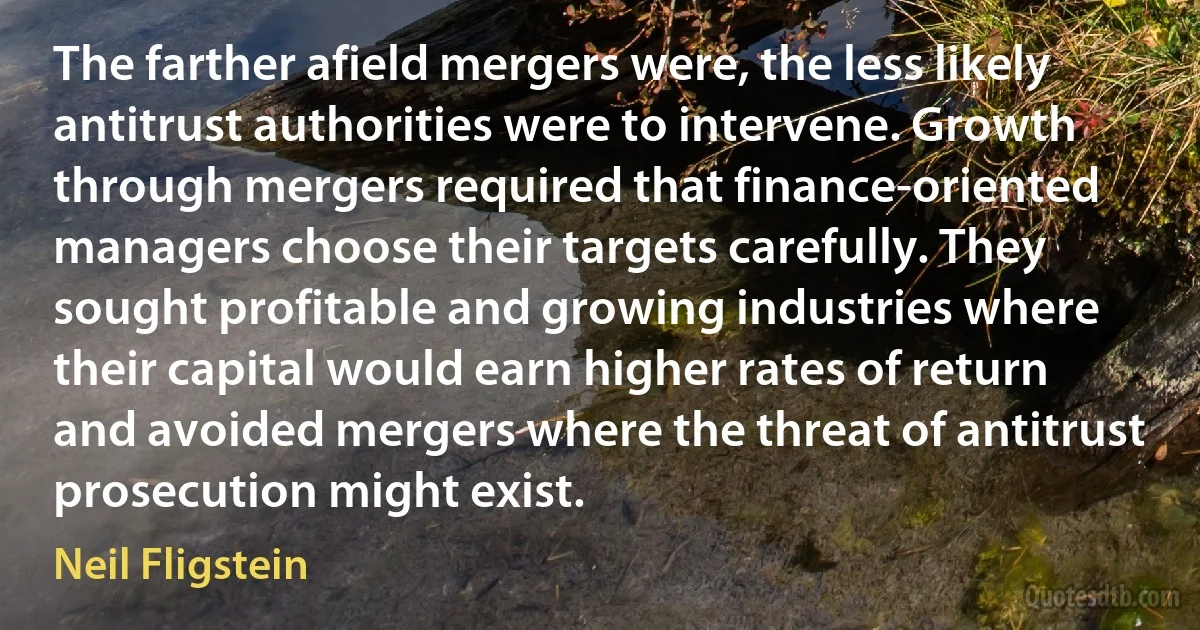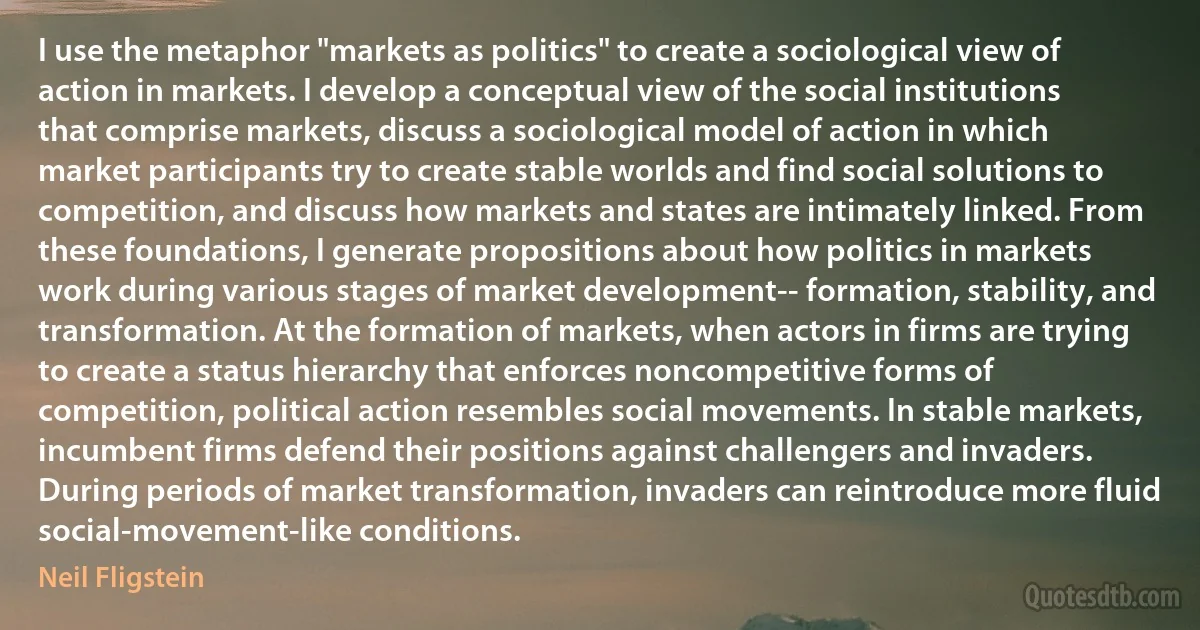Neil Fligstein quotes - page 2
Organizational and not financial or ownership embeddedness is likely to be a more important cause of actions of firms than anything else in the case of United States. This means efforts should concentrate on specifying models of relations between firms that focus on intra- and interorganizational processes, such as the construction of strategic action and the cultural frames by which such a construction makes sense.

Neil Fligstein
The finance conception of the modern corporation, which currently dominates, emphasizes control through the use of financial tools which measure performance according to profit rates. Product lines are evaluated on their short-run profitability and important management decisions are based on the potential profitability of each line. Firms are viewed as collections of assets earning differing rates of return, not as producers of given goods. The firm is not seen as being a member of only one industry. Consequently if the prospect of an industry in which it participates declines, the firm disinvests. The problem for management from this perspective is to maximize short-run rates of return by altering product mix, thereby increasing shareholder equity and keeping the stock price high.

Neil Fligstein
The major reasons for diversification were by this time well established : to employ excess plant capacity, to eliminate seasonal humps, to guard against dependency on one industry, to enter new expanding industries, to supplement existing product lines, to use old products to create new product, and to secure a larger share of business in general.

Neil Fligstein
The firm-as-portfolio model implies both a practice (growth through diversification) and a form (the conglomerate). Unrelated diversification entails buying businesses in industries that are neither potential buyers, suppliers, competitors, or complements to the firm's current business.

Neil Fligstein
The basic insight of the finance conception was that such a firm could be more tightly controlled by strict accounting. This progression does not imply, however, that one conception of control caused the emergence of its successor. New conceptions of control evolved out of key interactions among firms and between firms and the state.

Neil Fligstein
I claim that the central goal of managers in the past hundred years has been to make sure their firms survived. To promote survival they proposed various forms of control, both inside and outside the firm. Internally, control was oriented to ensuring that organizational resources were deployed so that top management could be confident that their directives were being executed. Externally, this control was oriented toward establishing stable relations between competitors to promote the survival of their organizations.

Neil Fligstein
The purpose of the large horizontal (same-product) mergers was to reduce the number of plants and, hence, control production enough to insure a reasonable rate of profit. Mergers would allow a newly created large firm to produce full-time in its most efficient plants, and thereby maintain prices, production, and profits.

Neil Fligstein
The key insight of the approach is to consider that social action takes place in arenas, what may be called fields, domains, sectors, or organized social spaces... Fields contain collective actors who try to produce a system of domination in that space. To do so requires the production of a local culture that defines local social relations between actors.

Neil Fligstein
Neil Fligstein
Occupation: American SociologistBorn: May 23, 1951
Quotes count: 39
Wikipedia: Neil Fligstein


